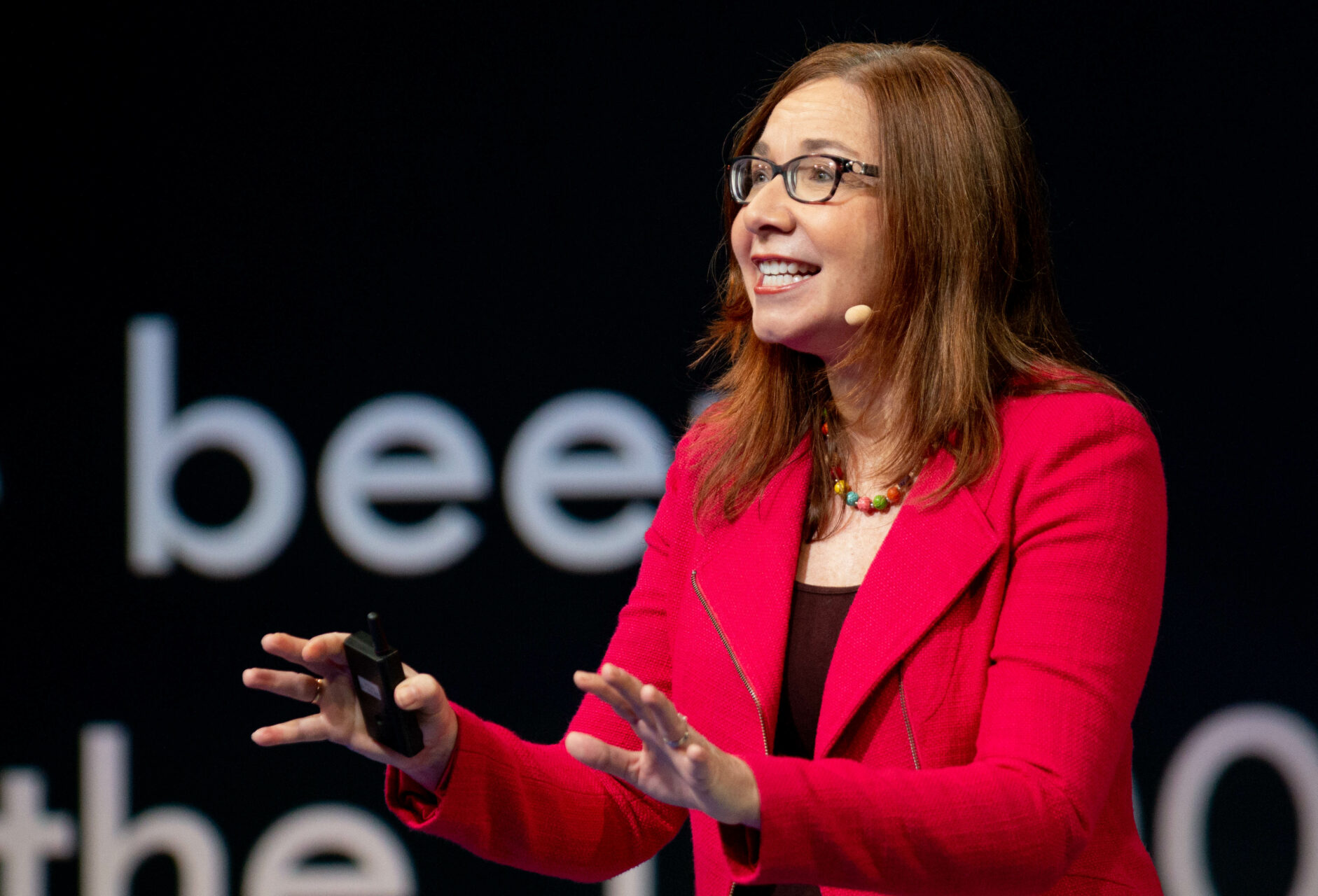Climate scientist and Texas Tech University professor Katharine Hayhoe gave BYU students clear and approachable ways to address climate change during her forum on Nov. 29.
In her address, titled “Loving All God’s Creations,” she told BYU students she uses science to find out the facts of climate change, but uses her heart, and her faith, to care about the people and places it impacts and to decide what to do about it. She also encouraged listeners to start conversations and connect with people to create systemic change and demonstrate love for God’s creations.
Hayhoe is an atmospheric scientist who studies the impact of global warming — or as she called it, “global weirding.” In 2014, she was listed as one of TIME’s 100 most important people and gave a popular TED talk that has millions of views on YouTube and the TED website.
She started her address by connecting her faith to her profession. She said being raised by parents who were both scientists and Christians had an impact on her. “What is science other than studying God’s creation?” she said.
Hayhoe said some people doubt the reality of climate change because they think those changes can be contributed to the sun, volcanic activity or natural cycles.
However, she debunked these ideas, saying the planet has been getting less energy from the sun in the last 50 years, volcanic activity blocks heat and natural cycles simply move heat around rather than create it — so, according to her, the earth should be cooler, not warmer.

She also said a warmer climate increases the frequency and intensity of weather-related disasters like floods, wildfires and droughts. This affects all living things including people, Hayhoe said, especially poorer people. “What is climate change other than a failure to love? Because these disasters affect us,” she said.
In order to address the dire consequences of a changing climate, Hayhoe compared the global temperature to a pool. She said there is a certain level that is comfortable for us, where an individual’s feet can touch the bottom. But in the early 1700s, she explained that humans started pouring more and more water into it by using fossil fuels.
To survive, she said people need to do three things. First, turn off the hose. This might mean consuming less energy or wasting fewer resources. Second, open and widen the drain. The good news is that nature can help us with this, and individuals can help by making cities greener by planting trees and promoting preservation. Third, learn how to swim and help others do the same. Hayhoe said it will take time to empty the pool back to comfortable levels. So, in the meantime, people need to learn how to live in the current environment.
“When we look at climate solutions, there are so many win-win-wins,” Hayhoe said. “They can provide more affordable energy, not less. And they can definitely save the world.” She also gave some examples of what she does in her own life to address climate change, like plugging your consumption into the UK Berkley Climate Calculator and implementing small changes.
But personal consumption only makes up a quarter of greenhouse gas emissions, Hayhoe added. She recommended having conversations and talking about the changes being made with the people around us.
“It is a genuine expression of our faith,” Hayhoe said about climate action. “It is a faithful acceptance of our responsibility. And it is a true expression of God’s love.” BYU students can visit the University’s sustainability page to learn more about how they can get involved.




